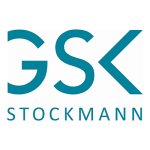Since the opening of the overseas subsidiary of Bank of China in Luxembourg in 1979, the Grand Duchy has become a gateway to the EU for Chinese financial institutions. More generally, it has been brought into the sight of Chinese investors as the subsidiary of Bank of China in Luxembourg and the EU hubs of other Chinese banks which have been set up in Luxembourg at a later stage serve Chinese-based investors that wish to invest in Europe.
The overseas subsidiaries of the Chinese banks have also expanded into capital market activities in Europe alongside asset and wealth management, and are actively involved in financing M&A deals which are originated by Chinese investors.
Moreover, in 2011, the Luxembourg Stock Exchange (LuxSE) listed the first offshore renminbi (RMB) bonds, better known as dim sum bonds, issued in Europe. Since then, the exchange between China and Luxembourg has experienced rapid growth, to the extent that when Chinese investors plan to list renminbi bonds in continental Europe today, the LuxSE is a natural choice.
Such features have helped Luxembourg to become a pre-eminent hub within the EU for financial services activity connected to the Chinese market, and one of the largest renminbi centres outside the People's Republic of China.
During recent years, investment from EU countries into China and vice versa has been significantly affected by the COVID pandemic. Domestic constraints on Chinese outbound capital flows and tightening scrutiny of Chinese investments abroad have not helped the recovery of Chinese investment in Europe and Luxembourg. The lack of a recovery was also likely linked to China’s adherence to a zero-COVID strategy, which hindered cross-border travel and, thus, dealmaking activities.
Moreover, after a slow but stable recovery from the pandemic, the multitude of crises on the global stage – the war in Ukraine, rising energy prices, financial turmoil and debt pressures – slowed down the slightly positive trends of global foreign direct investment (FDI) in 2022.
On the other hand, there is renewed enthusiasm among market players as China moves into a new era of ‘living with COVID’ in 2023. Accessing the Chinese market will become significantly easier for foreign companies, potentially paving the way for higher levels of European investment.
Regulations of investing
Overview
As regards practical considerations for making investments in Luxembourg, in general no specific pre-approval process for M&A transactions exists, but the deals may be subject to an a posteriori approval process by the competent Luxembourg authority.
As for the restrictions on investment, specific rules may apply in certain sectors. For example, for acquisitions in the financial sector (such as banks or asset managers), an investor must notify its intention to acquire a certain threshold in a Luxembourg bank or financial sector entity to the regulator, the Commission de Surveillance du Secteur Financier (CSSF).
The CSSF has the right to oppose the transaction based on reasonable grounds and legal criteria. Other restrictions apply in certain industries or to the acquisition of companies with securities admitted to trading on a regulated market in Luxembourg, where the CSSF, being the competent authority, shall supervise bids impartially and independently of all parties to the bids. The related rules are established by the law of May 19 2006 implementing Directive 2004/25/EU on takeover bids, as amended (also known as the Takeover Law).
Generally, the following rules apply to Chinese investors and investments, and there are no currency restrictions and no specific contractual provisions that arise in relation to Chinese investment.
EU–China Comprehensive Agreement on Investment
On December 30 2020, the EU and China reached an agreement in principle on the EU–China Comprehensive Agreement on Investment (CAI), which places an emphasis on providing access to the Chinese market for European investors. The CAI would enable more cross-border deals between the EU and China and support a better balance in the EU–China trade relationship.
Both sides have been continuing separate negotiations on investment protection, to be completed within two years of the signature of the agreement, and on March 12 2021 the European Commission published the schedules of commitments agreed under the CAI.
However, on May 20 2021, following the Chinese counter-sanctions to EU human rights sanctions against Chinese officials in connection with reported human rights abuses in Xinjiang, the European Parliament resolved to freeze the CAI negotiations until Chinese counter-sanctions are lifted.
The CAI is therefore on hold, but analysts say that negotiations among the parties may restart in 2023.
Foreign direct investment
On September 15 2021, a bill (No. 7885) was presented before the Luxembourg Parliament with the aim of establishing a screening mechanism for FDI.
The proposed regime introduces a mandatory notification and pre-approval requirement for certain foreign direct investments made by non-European investors in a Luxembourg entity operating in Luxembourg and carrying out certain activities which are deemed critical for the national security or public order in the Grand Duchy of Luxembourg (for example, energy, health, defence, finance, telecoms, data and media).
The bill, aimed at implementing Regulation (EU) 2019/452 of the European Parliament and of the Council of March 19 2019, will affect Chinese investors that wish to invest in Luxembourg entities operating in various sectors in the Luxembourg territory. The current draft is under discussion at the Luxembourg Parliament and is expected to be passed in 2023.
ESG
The EU is paving the way in setting out a legal framework on ESG aspects, sustainable investments and related disclosure obligations, thus indirectly affecting the M&A market and the strategies of Chinese outbound investments in Europe. Some of the most relevant initiatives at the EU level in recent years were the entry into force of Regulation (EU) 2019/2088 of November 27 2019 on sustainability-related disclosure in the financial services sector and Regulation (EU) 2020/852 of June 18 2020 on the establishment of a framework to facilitate sustainable investment.
Furthermore, two EU proposals regarding corporate sustainability were also discussed in depth in 2022.
The Corporate Sustainability Reporting Directive (CSRD) was adopted by the Council of the EU on November 28 2022 and will enter into force from the 2024 fiscal year. The CSRD, among others, will require large companies operating in the EU to disclose information on their ESG performance in their annual financial reports. Non-EU companies with substantial activities in the EU will also be covered.
Moreover, a proposal for a directive on corporate sustainability due diligence will soon be presented to the European Parliament and the Council of the EU for approval. The proposal aims to force large EU and non-EU companies with significant EU activities to disclose the actual and potential human rights and environmental adverse impacts of their operations and their value chains and those of their subsidiaries.
The Chinese government has been increasingly encouraging sustainable investment practices and prioritising ESG factors in overseas investment, since the ‘Belt and Road Initiative’ was incorporated into the Constitution of China in 2017. Moreover, Chinese FDI greenfield investments were almost one third of all Chinese FDI in 2021, reaching the highest recorded value of €3.3 billion (approximately $3.6 billion today), and they are expected to grow steadily in the years to come. The implementation of effective ESG policies and strategies by target companies may therefore attract more green and ESG-standardised investment from Chinese investors.
Merger control regime
There is no merger control regime in force in Luxembourg. However, public consultations in this field were launched in early 2022. On July 13 2022, the Ministry of the Economy published a preparatory report on the introduction of a merger control regime, which will be similar in terms of rules and concepts to that used by the European Commission and other national competition authorities in the EU.
The purpose of such a regime would be to give the National Competition Authority (formerly known as the Competition Council) the power and the tools to carry out an ex ante control of certain M&A or other alignments between undertakings which may have a restrictive effect on competition in Luxembourg, and to allow for early detection of such threats to competition, potentially limiting damage to consumers and undertakings alike. On the basis of the interim report, the Luxembourg government will prepare a bill of law, which is expected to be submitted to Parliament in the following months.
Regardless of the approach ultimately chosen, it appears likely that any future merger control regime will target transactions with a discernible competitive impact in Luxembourg, with the aim of protecting Luxembourg consumers first and foremost. Chinese investors are advised to pay close attention to the upcoming bill.
The EUMR
As regards the merger clearance process, the Luxembourg law of October 23 2011 on competition designated the National Competition Authority as the competent authority to scrutinise and analyse M&A taking place in Luxembourg and involving Luxembourg entities. On January 30 2023, the Luxembourg Competition Authority filled out its first referral request under Article 22(1) of Council Regulation (EC) No. 139/2004 (EUMR), demonstrating the regulator’s commitment to referring transactions to the European Commission when it believes that there is at least a threat of a significant effect on competition in the country brought about by an operation without any EU dimension.
The Foreign Subsidies Regulation
On November 28 2022, the Council of the EU adopted the Foreign Subsidies Regulation (FSR), targeting all companies that are active in the EU and that have received any form of direct or indirect foreign financial contributions from a non-EU country. The new regime will require companies involved in M&A transactions to notify the European Commission when one of them is the recipient of a foreign financial contribution where jurisdictional thresholds are met.
The FSR will apply as of July 12 2023, and the filing obligation for M&A transactions and public tenders will take effect as of October 12 2023. A final implementing regulation and the notification forms for M&A transactions and public tenders are expected to be adopted by summer 2023.
Investment structures
The most common legal entities used for Chinese investment into Luxembourg are private limited liability companies (société à responsabilité limitée, or SARL) or public limited liability companies (société anonyme, or SA). Both are commonly used as structures for the acquisition of companies.
The SARL has a lower minimum share capital and seems to be favoured over the SA. As regards investment activities by funds established by Chinese investors in Luxembourg, the most common structure appears to be the reserved alternative investment fund (RAIF), and, to a certain extent, the specialised investment fund (SIF). Both are set up as limited partnerships in the form of a société en commandite simple or a société en commandite spéciale. In addition, an investment company in risk capital (société d'investissement en capital à risqué, or SICAR) is also commonly used by investors, including Chinese investors, to pool money for investment.
The key requirement for setting up and using any of these vehicles is the establishment of an entity in Luxembourg with sufficient substance. A minimum share capital needs to be provided to the Luxembourg vehicle, and management procedures need to be put in place. More specifically, a majority of the management members of the vehicle shall be Luxembourg resident and regular board meetings shall be held in Luxembourg, to ensure decisions are made in Luxembourg.
In establishing investment funds that carry out M&A activities, investors must verify that these comply with the regime of alternative investment fund managers and obtain the applicable approvals from the CSSF. While RAIFs are not subject to CSSF approval, the SIF and SICAR investment vehicles must be pre-approved by the CSSF before they can begin their business activities.
Dispute resolution
The most commonly used dispute resolution mechanisms are court litigation and arbitration.
Arbitration is generally favoured by foreign investors because arbitral awards are easier to enforce than court judgments, are more flexible and provide more privacy. By 2022, Luxembourg was party to over 100 bilateral investment protection treaties, including a treaty with China, the latest version of which entered into force in 2009. Luxembourg's arbitration courts are used to international agreements, given that Luxembourg has been increasingly used as a platform for cross-border investments, joint-venture vehicles and investment funds carrying out M&A activities worldwide.
As regards litigation, Luxembourg courts typically review disputes in a neutral and independent manner within a normal duration and issue titles for enforcement useable in Luxembourg and abroad as far as other jurisdictions are covered under respective regulations and treaties.
One of the most important pieces of regulation in this respect is the Recast Brussels Regulation: Regulation (EU) No. 1215/2012 of the European Parliament and of the Council of December 12 2012 on jurisdiction and the recognition and enforcement of judgments in civil and commercial matters.
Another is the Convention on jurisdiction and the recognition and enforcement of judgments in civil and commercial matters (also known as the Lugano Convention). Local civil procedure code and case law are also of importance.
However, parties in Luxembourg tend to solve their disputes outside arbitration and courts. This is to maintain confidentiality and enable a smooth continuation of business in Luxembourg.
Tax rules
Regarding taxation, Luxembourg benefits from an extended network of double taxation treaties advantageous for FDI into and out of Luxembourg. By applying the European Parent-Subsidiary Directive, typically no withholding tax applies on dividends. The corporate income tax rate in Luxembourg dropped from its standard rate of 17% to 16% as from the beginning of 2023 to compensate for inflation.
No specific FDI tax incentive schemes are in place, nor are there any specific reciprocal tax arrangements between Luxembourg and China.
The Law of March 25 2020 implementing Council Directive (EU) 2018/822 of May 25 2018 amending Directive 2011/16/EU as regards mandatory automatic exchange of information in the field of taxation in relation to reportable cross-border arrangements (DAC6), which entered into force on July 1 2020, requires intermediaries to disclose to the Luxembourg tax authorities any cross-border arrangements that meet a hallmark.
This regime inevitably impacts cross-border M&A structuring by Chinese investors, as cross-border M&A tax structuring in terms of the review of the share purchase agreement, tax structuring upon acquisition, cash repatriation strategies upon sale, etc. need to be carried out in accordance with such a transparency regime.
Moreover, a bill of law (No. 8029) is under discussion by the Luxembourg Parliament implementing further amendments to Directive 2011/16/EU on administrative cooperation in the field of taxation (DAC7). The proposed reform contains several sections that complement and extend the existing domestic rules on tax transparency and exchange of information.
In addition, on December 8 2022 a new proposal was presented by the European Commission, with the aim of introducing new reporting obligations for service providers or operators involved in providing crypto-asset services to EU resident customers (DAC8). Member states will be required to adopt and publish their laws, regulations and administrative provisions necessary to comply with DAC8 by December 31 2025 at the latest.
On January 17 2023, the European Parliament approved the proposal for a council directive laying down rules to prevent the misuse of shell entities for tax purposes and amending Directive 2011/16/EU (the ATAD 3 Proposal). This approval follows a little over a year after the initial proposal was first published by the European Commission.
The ATAD 3 Proposal provides a multi-step test to facilitate the identification of shell entities, and introduces automatic exchange of information for all in-scope entities by amending Directive 2011/16/EU. As a next step, the Council of the EU will have the final say on its adoption and implementation into the domestic legislation of EU member states, which is expected to occur by June 30 2023, with January 1 2024 being the effective date.
This new regime is expected to have an impact on EU corporate taxpayers, including Chinese investors that set up legal entities in the EU or Luxembourg that have no, or only minimal, substance, and that perform no actual economic activity, which pose a risk of being used for improper tax purposes, such as tax evasion and avoidance.
Outlook
The outlook for Chinese investment into Luxembourg remains fairly optimistic, as the authors are of the opinion that the legal and political stability of Luxembourg’s regulatory and legislative framework, as well as its growing fund industry and financial sector, are still the main considerations for Chinese investors making investment decisions.
However, strict capital controls in China, the war in Ukraine, and expanding screening regimes and scrutiny of Chinese investment in the EU might slow down Chinese investment in and through Luxembourg in 2023.
The exact impact of the war in Ukraine on China’s investment will depend on the development of the crisis and the stance the Chinese government ends up taking towards the conflict. However, the war has already triggered intense debates on critical infrastructure and resilience in Europe, which could, in turn, increase scrutiny of Chinese investment in a number of sectors, including infrastructure, transport and energy.
Investments focusing on certain sectors, such as consumer goods and infrastructure, are more likely to attract attention and interest from Chinese investors. Nevertheless, ESG and green investment is going to be a major topic and offer potential growth in terms of opportunities going forward.
As ESG factors and considerations will play an increasingly important part in investment decision making, it is now critical for Chinese investors to consider ESG standards in evaluating outbound investment opportunities in Luxembourg and the EU, to build specific expertise in ESG topics and to seek alignment with ESG integration issues by acquiring or merging with ESG-adjacent assets and activities.
On the other hand, Luxembourg continues to be the leading hub for supporting green investment flows and will provide increasing opportunities for Chinese investors to enter the European markets.



